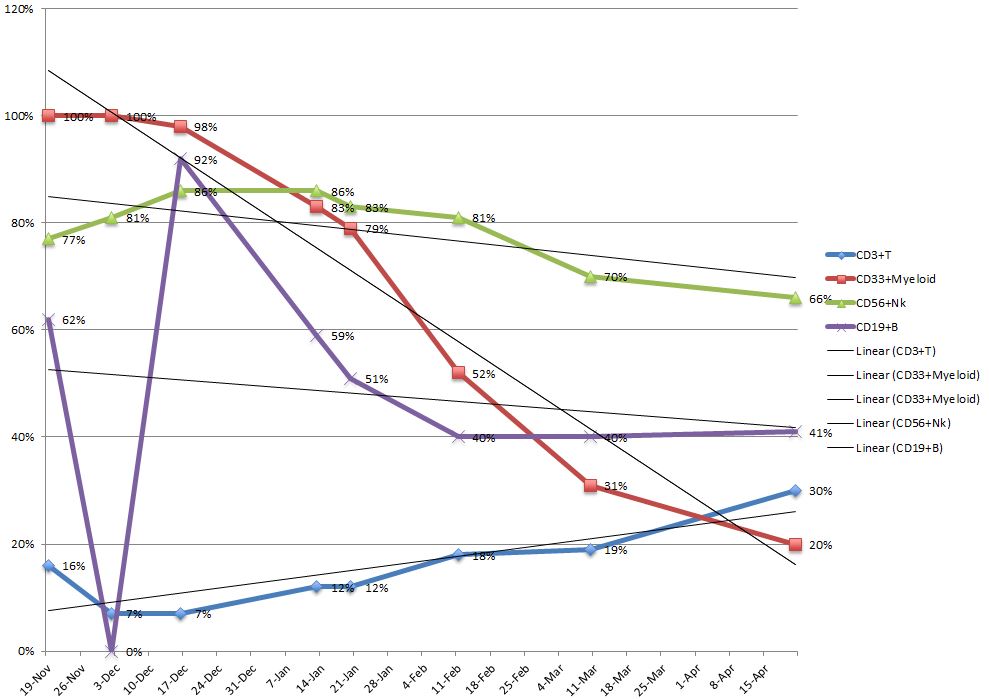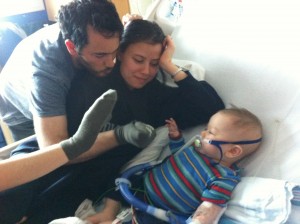 As you have probably caught on to by now, the state of Idan’s graft seems to be in flux every time we check in with you all. Today is no exception.
As you have probably caught on to by now, the state of Idan’s graft seems to be in flux every time we check in with you all. Today is no exception.
The last time we checked the chimerism of Idan’s graft, his donor T-cells were stable but low, and his donor Myeloid cells were dropping precipitously. We started a third immunosuppressant (MMF) in the hopes of stabilizing the graft so that the numbers did not drop any further.
We checked the chimerism again last week, and once again we are scratching our heads. The Myeloid cells are still dropping, but at a slightly slower rate. The fact that they are still dropping, though, means that they can still bottom out before the MMF has enough time to save them. Without any donor Myeloid cells, there is little hope for the long-term stability of the graft.
That said, the donor T-cells, the cells we need replaced to cure Idan’s Hyper IgM, went up from 19% to 30%. This increase took us completely by surprise as we expected the T-cells to continue hovering around the 19% mark at best, or maybe even start falling this month. Instead, they jumped up a significant amount. It may have been from the added MMF or even the DLI back in December, or it may have just been a fluke.
The difference between 19% and 30% may be the difference between whether Idan will suffer from secondary cancers during his adolescence or not. If we could sustain his T-cells at 30%, we’d be ecstatic. It obviously isn’t a slam-dunk-cure of the sort we hoped for back when we did the transplant, but it would likely save Idan from a second transplant and worse. The problem is, without the Myeloid cells, we still don’t know whether the donor T-cells will have enough support to stick around for very long. Based on the overall trend, it looks like the T-cells are steadily increasing, the tiny number of B-cells Idan has are relatively stable, and the Myeloid and NK cells are still dropping, albeit at a slower rate (see chart with trend lines below). For that reason, we are cautious about calling the increase in T-cells “good news” until the other lines stabilize.

In other news, Idan’s latest recurrence of his GvHD seems to have resolved by slightly increasing the steroids. We are glad we did not have to increase the dose too much, and hopefully we can start tapering this Friday. In all likelihood though, we will be doing a dance with Idan’s GvHD and the steroid dose for a couple more months until we can safely stop the steroids altogether.
Also, because his counts have been stable, Idan will not be poked for a routine blood draw after the doctor examines him this week. It has been seven months since Idan has gone an entire week without having blood drawn, let alone two, so we are very grateful for this news. Hopefully the trend continues and we can reduce the blood draws to once every two weeks.



